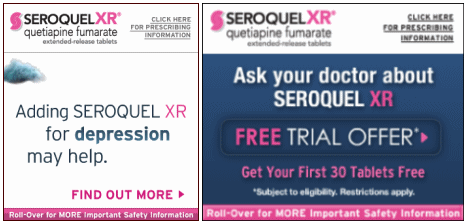It just seems like every time I have a question about this drug business, I have to go learn something else that I know absolutely nothing about. In this case, I naively begin to thing about patents in my last post, but then I found out that all this talk about patents isn’t the crux of the matter, it’s exclusivity. This, from the FDA:
FAQ on Patents and Exclusivity
|
|
| 1 | What is the difference between patents and exclusivity? |
| Patents and exclusivity work in a similar fashion but are distinctly different from one another. Patents are granted by the patent and trademark office anywhere along the development lifeline of a drug and can encompass a wide range of claims. Exclusivity is exclusive marketing rights granted by the FDA upon approval of a drug and can run concurrently with a patent or not. Exclusivity is a statutory provision and is granted to an NDA applicant if statutory requirements are met. See 21 C.F.R. 314.108. Exclusivity was designed to promote a balance between new drug innovation and generic drug competition. | |
| 2 | How long is a patent granted for? |
| Patents expire 20 years from the date of filing. Many other factors can affect the duration of a patent. | |
| 3 | How long is exclusivity granted for? |
| It depends on what type of exclusivity is granted. Orphan Drug [ODE] – 7 years New Chemical [NCE]- 5 years Other Exclusivity – 3 years for a change if criteria are met Pediatric Exclusivity [PED] – 6 months added to existing Patents/Exclusivity Patent Challenge – [PC] – 180 days [this exclusivity is for ANDAs only] See 21 C.F.R. 314.108 New Drug Product Exclusivity. |
|
| 4 | Why does the exclusivity expire before the patent? Patent before exclusivity? Why does a particular drug product only have patents? Why does the exclusivity expire before the patent? Patent before exclusivity? Why does a particular drug product only have patents? Only have exclusivity? Have neither? |
| Patents can be expired before drug approval, issued after drug approval, and anywhere in between. Exclusivity is granted upon approval of a drug product if the statutory requirements are met. Some drugs have both patent and exclusivity protection while others have just one or none. Patents and exclusivity may or may not run concurrently and may or may not encompass the same claims. Exclusivity is not added to the patent life. Expired patents and exclusivity are not included in the published list. | |
I read the above and I thought I understood it. So I looked up Seroquel. But when I went to the FDA’s "Electronic Orange Book," it just evaporated. Here are some tables with all of the various codes linked:
| APPLICATION# | PATENT# | PATENT_EXPIRATION | USE_CODE |
|
|
|||
| N022047 | 4879288 | 9/26/2011 | U-601 [BPD] |
| N022047 | 4879288 | 9/26/2011 | U-814 [SCZ] |
| N022047 | 4879288 | 9/26/2011 | U-839 [MDD] |
| N022047 | 4879288*PED | 3/26/2012 | |
| N022047 | 5948437 | 3/28/2017 | U-601 [BPD] |
| N022047 | 5948437 | 3/28/2017 | U-814 [SCZ] |
| N022047 | 5948437 | 3/28/2017 | U-839 [MDD] |
| N022047 | 5948437*PED | 3/28/2017 | |
| APPLICATION# | EXCLUSIVITY_CODE | EXCLUSIVITY_EXPIRATION |
| N022047 | I – 618 | 12/02/2012 |
| N022047 | I – 576 | 10/08/2011 |
| N022047 | I – 575 | 10/08/2011 |
| N022047 | I – 574 | 10/08/2011 |
| N022047 | D – 117 | 10/08/2011 |
| N022047 | PED | 04/08/2012 |
| N022047 | PED | 11/17/2010 |
| N022047 | PED | 04/08/2012 |
| N022047 | PED | 04/08/2012 |
| N022047 | PED | 04/08/2012 |
| SEROQUEL | SEROQUEL XR | |
|
|
||
| Patent Number: | 4879288 | 5948437 |
| Patent Filed: | 03/20/1987 | 05/28/1997 |
| Patent Approved: | 11/07/1989 | 09/07/1999 |
| FDA Application: | N022047 | N022047 |
| FDA Approval: | 09/26/1997 | 05/17/2007 |
| Expiration: | 09/26/2011 | 03/28/2017 |
If you look it over and figure out how the Patent/Exclusivity thing actually works, please enlighten me [and the rest of us]. I find it mystifying. There’s a blog [FDA Matters] that seems to get it, though I don’t understand enough to follow along. Here’s the take-home at my level of confusion. Extending the Patent/Exclusivity dates is the name of the game. The original bill in 1984 was the Hatch -Waxman Act and set all of this up to encourage the development of new drugs while clarifying the issue of Generics. In the three decades since, Patent/Exclusivity has become a specialty in the Law and Pharmaceutical Companies, and Seroquel has used all the tricks. The current one is a new patent on Seroquel XR. AstraZeneca is now on a campaign to convince the world that it’s the drug to use as a way of extending their "profit years."

Why Seroquel XR is better than Seroquel is hard for me to fathom. It isn’t, but it seems that’s the way the game is played.
You explain it as well as anyone…Big Pharma employs hundred (if not thousands) of the best professional manipulators to work every angle possible….this isn’t called the greatest Smoke&Mirrors Con of all time for nothing…
This series is an absolutely must read for anyone really wanting to know how that pill bottle got to their medicine cabinet…
See “Treating Partial Responders to Antidepressant Treatment” by Madhukar H. Trivedi, MD, here:
http://tinyurl.com/4bya756